In recent months, over 2,000 migrants in four European member states under particular migratory pressure have had their health data recorded as part of a groundbreaking joint initiative of the International Organization for Migration (IOM) IOM and the European Commission (EC) -Directorate General for Health and Food Safety (DG SANTE) that aims to address the health-related needs of this vulnerable cohort.
The Re-Health action aims to contribute to improving the capacity of EU Member States under particular migratory pressure to address the health-related issues of migrants arriving at key reception areas, while preventing and addressing possible communicable diseases and cross-border health events.
Re-Health was launched in February 2016 by the Migration Health Division of the IOM Regional office in Brussels. Ultimately the action aims at enhancing knowledge amongst stakeholders about refugees’ and migrants’ health needs; to ensure that migrant health assessment records are available at transit and destination countries; and to strengthen national and cross-border disease surveillance and response capacities. Central to this is the provision of an electronic personal health record (e-PHR), which will allow the systematic assessment of the health of arriving migrants and seeks to ensure that health assessment and preventive measures are provided to all.
The initiative has been praised as an example of true collaboration and cooperation between European member states. Yet the scale of this project is enormous, in terms of its scope and ambition, especially with the plan to expand to additional countries in the coming weeks. Here at the Alliance we know it is an ongoing challenge for different actors in maternal health - those seeking resources and those with something to offer – to find each other and collaborate on solutions.
As the maternal health landscape continues to be fragmented, applying this model will become increasingly crucial to solving the gaps in maternal health issues today. In a bid to foster a more efficient maternal health ecosystem, we are working to build the “Maternal Health Synapse” platform. This will act as a "marketplace" to help stakeholders within the maternal health ecosystem have an overview of all expertise and resources available.
We are seeking to develop an interconnected and dynamic repository of maternal health experts, activists, initiatives and resources that will function as a crowdsourced global community on maternal health. We believe this will enable close to real-time matching of urgent maternal health needs with solutions in one place, facilitating interaction with maternal health actors - those seeking and offering resources - at a local and global level. The goal is that the marketplace will also facilitate access to smart resources, innovators and problem-solvers, whether they are working independently, or within organizations.
As part of this innovative platform, we are thrilled to collaborate with IOM in the frame and continuation of the Re-Health initiative. We believe this is a groundbreaking project driven by digital data, which can have a significant impact on the health and wellbeing of migrants across Europe. Not only is the Re-Health project producing tangible results, it is also an example of how synergistic collaboration can drive the fight for maternal health equality.
The e-PHR pilot phase results from the implementing countries, Croatia, Greece, Italy and Slovenia, were presented recently at a conference in Brussels, attended by the Alliance for Maternal Health Equality and other stakeholders. Attendees heard that, to date, over 2050 e-PHRs (the IOM/European Commission universal tool for Health Assessment for migrants) have been collected. This solution can be scaled up and is already making an impact – indeed, the overall acceptance of the e-PHR by the migrants is 93%.
Ms. Roumyana Petrova-Benedict, IOM Senior Regional Migration Health Advisor for Europe, addressed the meeting; she spoke of the need to create a “migrant-sensitive health system” and highlighted the role of Europe in achieving the Sustainable Development Goals of the UN.
“When people think of the Sustainable Development Goals, they don’t necessarily think of Europe, but all countries must report on their progress in relation to the SDGs.”
At the Alliance for Maternal Health Equality, we believe this project has the potential to help towards ensuring all women get access to maternal healthcare by 2030, as stipulated in the SDGs. Currently, efforts to address this issue are fragmented across many individual projects that struggle to get sufficient visibility, secure resources, scale up and therefore make a sufficient impact. The Re-Health project has the power to transcend these difficulties and make a real difference.
Taking the project’s results to the next level is where it will become difficult, however. The demand for training is continuous, and extensive roll-out will require significant additional funding and resources. In addition, creating widespread awareness is critical to its success.
The Alliance has long advocated for an innovative multi-stakeholder partnership approach, which will combine culture shift, policy changes and new data-driven digital solutions. We all have different strengths to bring to the table. By working together, amazing outcomes are possible. The Alliance for Maternal Health Equality is therefore proud to work with IOM and other stakeholders to ensure the success of the Re-Health initiative.
Website: http://re-health.eea.iom.int/
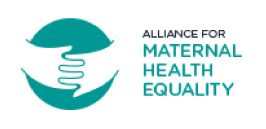

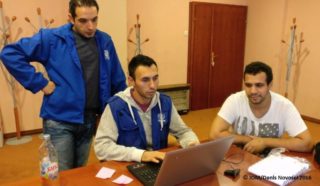
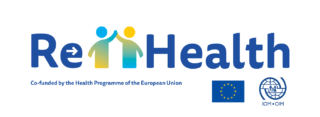
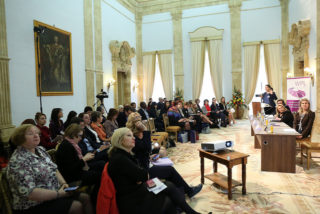
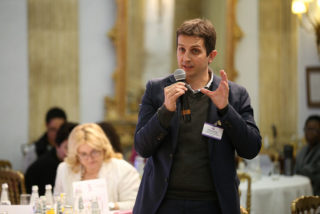 The ultimate goal of the Alliance is to deliver equity of access to quality maternal health at all levels, and a systematic approach to maternal health will be required in order to achieve this. High level meetings such as the recent Women in Parliaments Global Forum (WIP) Meeting in Malta on Maternal Health and Refugee Women represent a major opportunity to highlight our work with policy makers.
The ultimate goal of the Alliance is to deliver equity of access to quality maternal health at all levels, and a systematic approach to maternal health will be required in order to achieve this. High level meetings such as the recent Women in Parliaments Global Forum (WIP) Meeting in Malta on Maternal Health and Refugee Women represent a major opportunity to highlight our work with policy makers.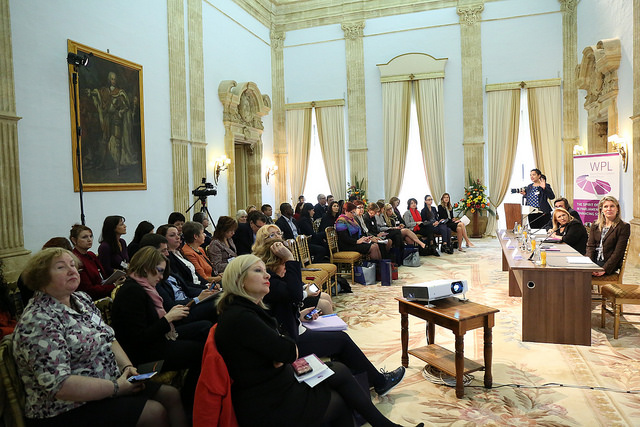
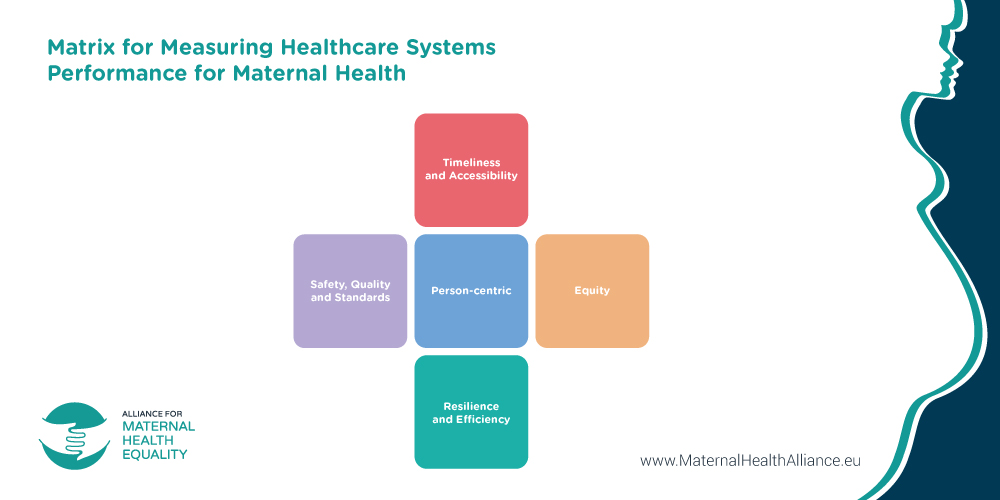
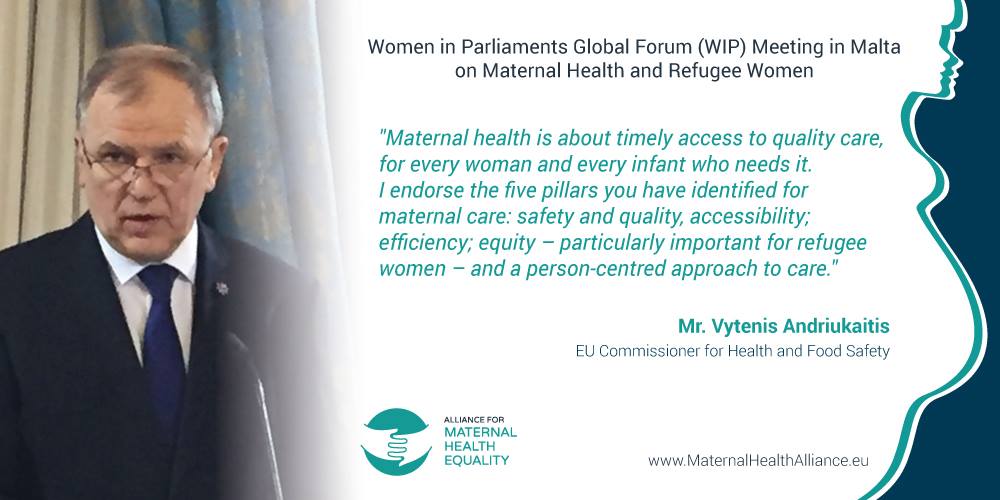
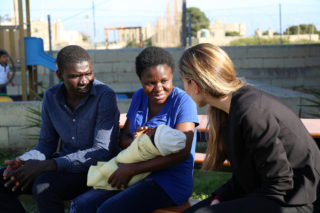 The hardships that the refugees face are unimaginable - as well as an often perilous journey, refugee women at the camp told me that the trip is also accompanied by the constant threat of rape. While we have all read similar stories, being there and hearing them speak first-hand about systematic rapes and all sort of abuses is an eye opener I wish much more people could experience.
The hardships that the refugees face are unimaginable - as well as an often perilous journey, refugee women at the camp told me that the trip is also accompanied by the constant threat of rape. While we have all read similar stories, being there and hearing them speak first-hand about systematic rapes and all sort of abuses is an eye opener I wish much more people could experience.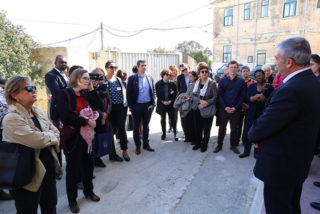
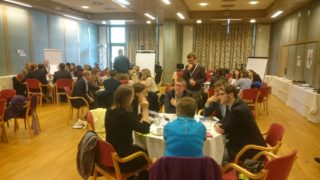
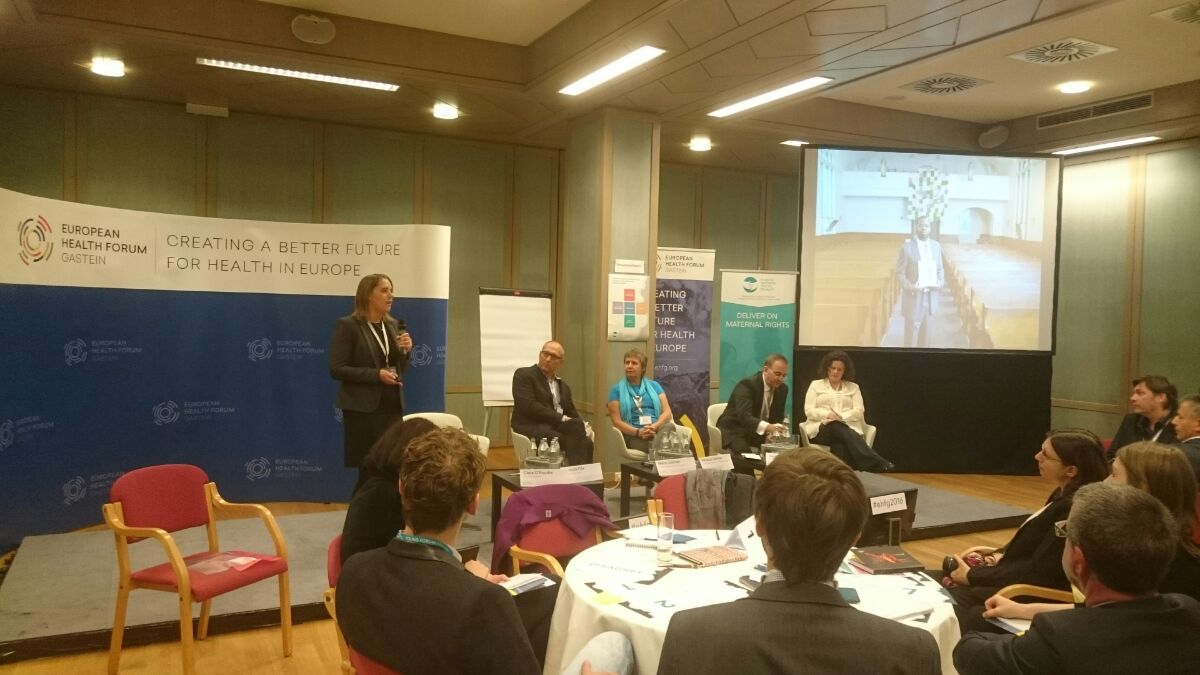
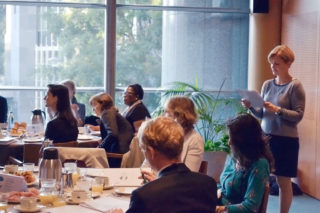

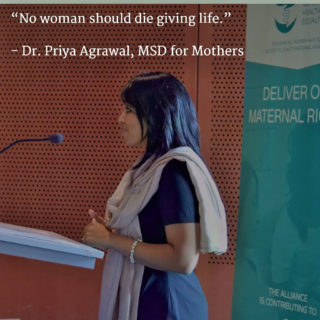
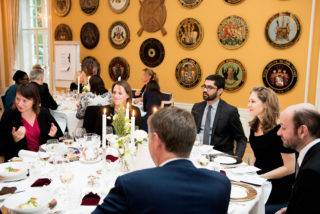
 Held during Women Deliver 2016, and in a residence formerly owned by the Royal Copenhagen Shooting Society (the Solyst), the setting was by no means typical! The evening turned out to be a very special moment where stakeholders , from policy makers, to CSOs and industry came together to make a commitment for the greater wellbeing of women in Europe. The evening was made even more special with the presence of Her Royal Highness Princess Sarah Zeid of Jordan who is a maternal and newborn health advocate.
Held during Women Deliver 2016, and in a residence formerly owned by the Royal Copenhagen Shooting Society (the Solyst), the setting was by no means typical! The evening turned out to be a very special moment where stakeholders , from policy makers, to CSOs and industry came together to make a commitment for the greater wellbeing of women in Europe. The evening was made even more special with the presence of Her Royal Highness Princess Sarah Zeid of Jordan who is a maternal and newborn health advocate. In terms of caring for vulnerable minorities, monitoring is required to fully understand the obstacles that these groups are facing when trying to access services linked to maternal health. This needs to be considered within the context of Europe, where health remains a national competence.
In terms of caring for vulnerable minorities, monitoring is required to fully understand the obstacles that these groups are facing when trying to access services linked to maternal health. This needs to be considered within the context of Europe, where health remains a national competence.

